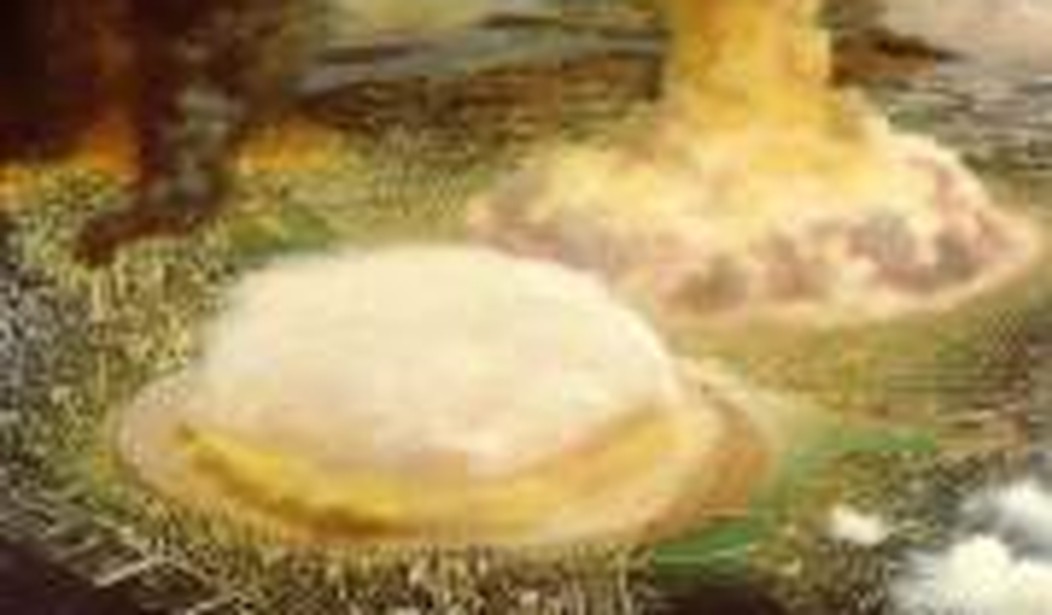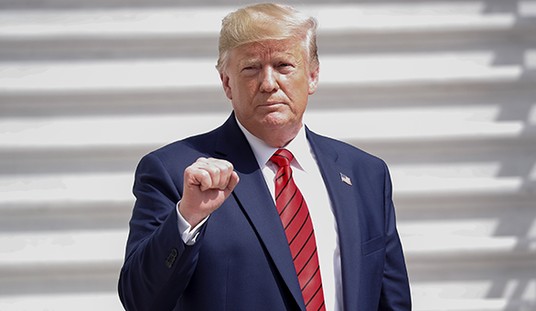Barack Obama called on Tuesday for the elimination of all the world’s nuclear weapons. According to AFP, Obama wants America to lead the way to disarming the world. "India and Pakistan and North Korea have joined the club of nuclear-armed nations, and Iran is knocking on the door. More nuclear weapons and more nuclear-armed nations mean more danger to us all. Here’s what I’ll say as president: America seeks a world in which there are no nuclear weapons." And the place to start the disarmament would be America, although Obama stressed he would not disarm unilaterally, and would back a strong US deterrent while nuclear weapons existed. "We’ll be in a better position to lead," he said, adding that under his presidency, the United States would adhere to the Nuclear Non-Proliferation Treaty. “It’s time to stop giving countries like Iran and North Korea an excuse. It’s time for America to lead."
Obama’s views don’t actually mean a world in which nuclear know-how has been abolished. On the contrary they assume a world in which nuclear knowledge has become universal. What they describe is a world without ready-use nukes. In fact, Obama’s speech bears an uncanny resemblance to the concept of shifting to a "virtual nuclear arsenal", what Colin Gray called "a thinking person’s variant of nuclear abolition", as a way of lessening the chance of using atomic weapons. The "world in which there are no nuclear weapons" Obama speaks of is not one where the knowledge of atomic physics and engineering has been abolished but one in which everyone agrees not have nuclear weapons ready for use. Gray adds that "nuclear virtuality should reinforce the NPT [Nuclear Non-Proliferation Treaty] by disarming the world’s active military inventories of nuclear weapons". Ian Davis, writing in the Guardian describes this nuclear strategy in a way that might have channeled Obama.
Britain could revert to a threshold nuclear weapon status, sometimes described as a virtual nuclear arsenal. This might be achieved either slowly (allowing the existing life-cycle of Trident to run its course) or relatively quickly (though a managed disarmament process). Either way, the intention would be to move to a virtual nuclear status and thereby leave the door ajar to re-constitute a rudimentary nuclear weapon quickly should the unlikely need arise in the future. Several nuclear capable but non-nuclear weapons states (like Japan) are already in this position.
This might be achieved under the "managed disarmament process", for example, by Britain decommissioning the Trident submarines, removing and dismantling the warheads but retaining both the fissile material under international inspection and appropriate expertise at Aldermaston. In which case, it should be possible for a nuclear warhead to be built within a relatively short time frame. Britain’s formal status under the NPT would be unaffected, as by definition (having exploded a nuclear weapon prior to 1967) it would remain a nuclear weapon state, at least until a new Treaty were negotiated in the event of all the nuclear weapon states achieving similar threshold status. In practice, the UK could declare its intention to act as a non-nuclear weapon state, and request to be treated as such by the IAEA.
Davis notes an objection from professionals strategists and quickly dismisses it:
Max Hastings, citing "Britain’s foremost nuclear strategist" Sir Michael Quinlan, says that this is not possible: "If we abandon nuclear weapons, it will be almost impossible ever to reverse such a decision." This is not true. The key technical questions are: how long would it take and what would be the delivery vehicle? While it would be extremely difficult to resurrect quickly a Rolls Royce nuclear weapon system like Trident, a Morris Minor nuclear deterrent would be a simple project for Britain. This would take the form of a free-fall bomb, the original and most basic nuclear weapon design, delivered by aircraft, or a land-based or surface-navy-based missile.
A virtual nuclear weapon would be the cheapest and least sophisticated insurance policy against the emergence of a blackmail possibility by a future nuclear-armed rogue state. Questions concerning the feasibility and timeline of this option remain, and are not limited to technical questions. The military, legal and political (both domestic and international) implications of such a decision would need to be addressed.
But Davis’ dismissal is very superficial. Apart from the fact that reverting to a "free-fall" bomb as he suggests would be a return to targeting cities, a la Hiroshima and Nagasaki, other difficulties remain. By equating the possession of nuclear weapons to the capability to produce nuclear weapons, not only Japan but practically every industrially advanced country would become to varying degrees, "virtual nuclear states". That would have the paradoxical effect of removing any meaningful rationale for non-proliferation.
Whatever the advocates say about putting “fissile material” under international nuclear inspection, there is far less political menace inherent in aspiring to become a virtual nuclear state than an actual one. The difficulties in mustering the international will to prevent Iran from becoming an “actual” nuclear weapons state are almost insurmountable. What chance would there be of imposing sanctions, or even threatening war on Iran or any NPT violator if it declares intent to become a “virtual nuclear state”? Probably no chance whatsoever.
Virtual nuclear armament would become a normal condition. What is the point of preventing a normal condition? Obama’s observation that nuclear technology is spreading combined with his desire to create "a world in which there are no nuclear weapons" leads to a world in which everybody eventually knows how to build nukes, but nobody says they actually have them ready for use. It would be a ban is on having an actual arsenal not a virtual arsenal. In that world there can be no cogent rationale for preventing Iran from becoming a "virtual nuclear power" for so long as it declares it has no ready-use nukes.
But the two most important problems inherent in the concept of a virtual nuclear arsenal remain unaddressed: the fate of deterrence and the problem of arms verification. While we nostalgically yearn for the time before the Atomic Bomb spread its dark wings over mankind, it would be well to recall that the world before deterrence was the most violent period in history. World War 2 killed 300 million people. Whatever their faults, nuclear weapons made all-out wars impractical as an instrument of national expansion and aggrandizement. They led directly to the miniscule armies of Western Europe now possesses. In the 1940s the armies of Europe were numbered in the millions. By 1950 such huge military establishments were widely regarded as useless precisely because of nuclear weapons. Might a return to the pre-nuclear age restart conventional warfare in a world grown largely free of it? Moreover, much of today’s "international system" is a direct result of the nuclear monopoly by the Great Powers. The Security Council is nothing but another name for the Nuclear Club. That is where it derives its authority. A globe in which all countries were alike virtual nuclear states would have serious implications for the stability of the international system.
When you think about it, Obama’s proposal only requires existing nuclear weapons states to do something. Nations on the road to virtual nuclear weaponry need do nothing at all but stay the course. Lastly there is the problem of arms verification. Arms control technology relies very heavily on the detection of fissile enrichment facilities and delivery systems. Uranium enrichment plants, missile silos, etc are easy to count. But in a world where becoming a "virtual nuclear state" is to all intents and purposes acceptable, the existence of Iran’s centrifuges, for example, would cross no red lines. Scientific "know-how" is impossible to detect. Since nuclear warheads themselves are fairly small (ten of them can be put on a missile) they are easily concealed. A statement by the UK or USA that it has no nuclear weapons could be regarded as true, but what force would a similar declaration by Russia, China or Iran have? Furthermore, surveillance technology can more easily detect standard Western delivery systems (like bombers, ballistic missile subs, etc) based on conventional platforms than terrorist delivery systems (trucks, shipping containers, disassembled componentized bombs). Again, Obama’s proposal would require existing nuclear powers to dismantle all the visible signs of their weaponry. It would not require Iran or North Korea to do without shipping containers. Obama’s proposal might reduce the odds of an all-out nuclear exchange but at the cost of making a limited nuclear surprise attack or terrorist WMD strike more likely — and without riposte by the victim nation. Would this be a safer world than today’s? Maybe someone should ask Barack Obama.










Join the conversation as a VIP Member